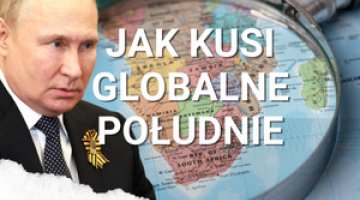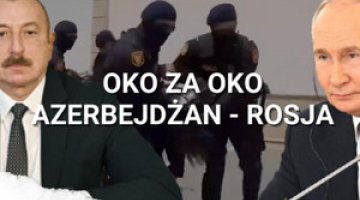The Russian Federation’s foreign policy concept
On 12 February, President Vladimir Putin signed a new Foreign Policy Concept of the Russian Federation. This is the fourth consecutive document of this kind in post-Soviet Russia. The previous Foreign Policy Concept was announced in July 2008, at the beginning of Medvedev’s presidential term. In contrast to the 2008 version, the current version of the concept is based on a pessimistic assessment of international trends, and reflects the deep anxiety with which the Russian elite is regarding what it sees as an increasingly threatening international environment. Despite raising numerous complaints about Western policies (especially the US), it also contains a conditional offer of strategic partnership with the West in order to counter common threats.
A combination of continuity and change
The new concept repeats a number of themes that were present in the 2008 Concept, but it also includes some new elements and somewhat alters the emphases. The ‘old’ items include the paradigm of the ‘multipolar world’, which is presented as the desirable model of international order; the perception of international relations in terms of a clash of national interests; the multi-vector nature of Russian foreign policy; prioritization of relations with the countries of the post-Soviet area; emphasis on Russia’s sovereignty and the ‘great-power’ nature of its policy; and the proposal to re-shape the Euro-Atlantic security architecture area towards a collective security system.
New in the Concept is a general diagnosis of the current state of international relations, which is assessed as being unfavourable to Russia. This diagnosis highlights four new elements of the international situation: 1) a fundamental change in the balance of power on the international stage, involving the weakening of the Western world and the growing power of Asia; 2) the overall instability of the international system, caused by the global economic and financial crisis, as well as the qualitatively new phenomenon of aggressive Islamic radicalism; 3) intensified ‘competition’ in the international arena, which is increasingly taking on a cultural and civilisational dimension; 4) the growing unpredictability of the international situation.
The West as the source of the problems
The Concept indicates that the Russian ruling elite perceives the West as an important source of increasing instability in the international system. Firstly, it blames the global economic and financial crisis on Western economic policies. Secondly, it believes that the way in which the West (especially America) responds to regional crises – unilateral sanctions and humanitarian interventions without a UN mandate – undermines already-existing states, and opens up the way for Islamic radicals. Thirdly, it is convinced that the West is using new political technologies (‘soft power’) to interfere in the political life of sovereign states and, by manipulating the public mood of both the masses and the elites, is seeking to impose their political and social model upon them.
The priorities of Russian foreign policy
Basically, the new Concept does not prescribe any fundamental changes in the priorities of Russian foreign policy. The top priority remains the build-up of a sphere of influence in the post-Soviet region. However, the new version more strongly emphasises the imperative of regional integration, assigning the key role in this respect to the development of the Eurasian Economic Union. Strikingly, the document explicitly names Ukraine as Russia’s priority partner in the context of the post-Soviet integration.
One novelty, in comparison with the previous version of the Concept, is that the document assigns priority to relations with Western countries, and justifies this by explicitly referring to the common civilisational roots between Russia and the West. The document also introduces greater differentiation between the European Union and the United States. The aim in relations with the EU is outlined more ambitiously: the creation of a single market and of mechanisms for security cooperation (which is not a new idea, but this is the first time it has been stated in an official document of this level). In contrast, the target for relations with the United States is less ambitious: the aspiration for strategic partnership has disappeared, and the emphasis in bilateral relations is to be shifted from strategic and political issues to commerce and business, in order to build ‘a solid economic foundation’ for Russian-American relations.
We learn from our competitors
Another new element in the concept is the call for Russia to use ‘soft power’ to a greater degree than hitherto. The Russian understanding of ‘soft power’ has its roots in local political tradition, and relies on an ability to actively affect the formation of opinion about Russia in influential foreign milieus, and to manipulate domestic and foreign public opinion by means of institutions and pressure groups which are formally independent of the state.
An offer of a strategic partnership with the West
The new Concept can also be read as an offer of a‘geopolitical’ and ‘geo-economic’ deal on strategic cooperation between Russia and the West. In the eyes of the Kremlin leadership, both Russia and the West are facing similar challenges and threats, generated by Islamic radicalism on the one hand, and the rise of Asian powers on the other. According to Russia’s ruling elite, the weakening of the West is creating favourable conditions for a deal because the West will be more willing to accept Russian conditions. These are: that the West should recognise Russian ‘specificity’ in the sphere of values, and give up any attempts to influence Russian internal developments; it should accept the coordination of activities in the security field based on the principle of a ‘concert of powers’ (Russia, the USA, the EU); open up the EU to Russian economic and social penetration (visas); bring about the de facto neutralisation of Western alliance structures (NATO), and respect the Russian sphere of influence in the CIS.





